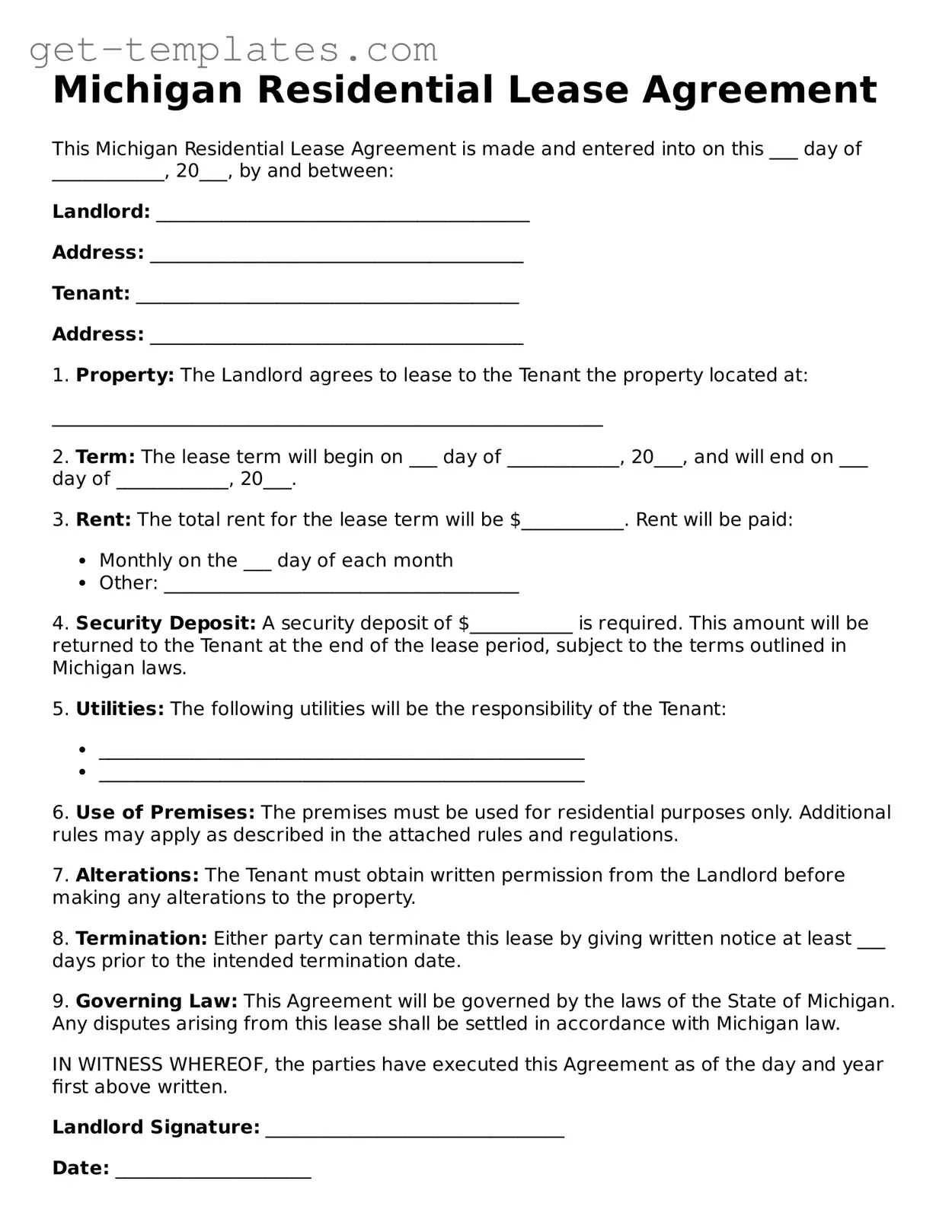Attorney-Approved Residential Lease Agreement Document for Michigan
The Michigan Residential Lease Agreement is a legal document that outlines the terms and conditions between a landlord and tenant for renting residential property. This agreement serves to protect the rights of both parties and ensures clarity regarding rental obligations. Understanding this form is essential for anyone involved in a residential rental arrangement in Michigan.
Get Document Online

Attorney-Approved Residential Lease Agreement Document for Michigan
Get Document Online
You’re halfway through — finish the form
Finish Residential Lease Agreement online — edit, save, download made easy.
Get Document Online
or
⇓ PDF Form
